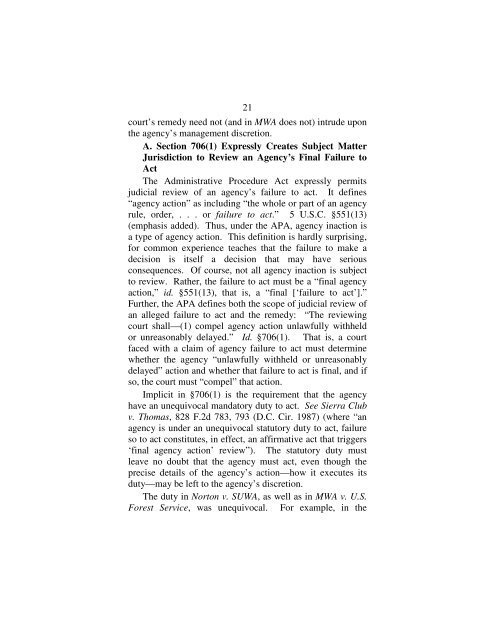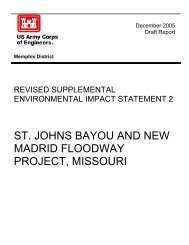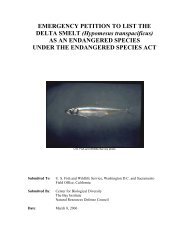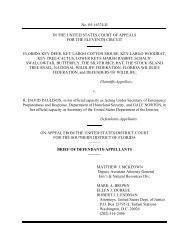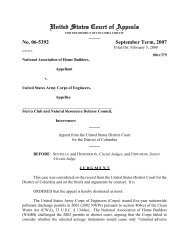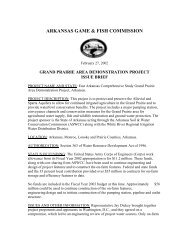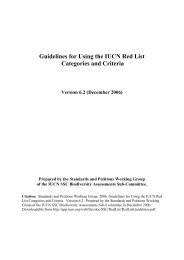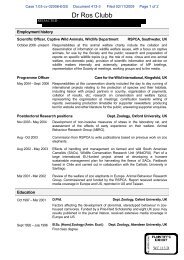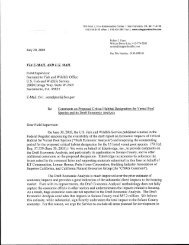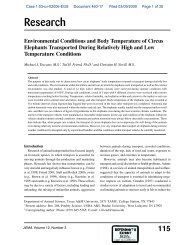Brief Amicus Curiae Of Montana Wilderness Association In Support ...
Brief Amicus Curiae Of Montana Wilderness Association In Support ...
Brief Amicus Curiae Of Montana Wilderness Association In Support ...
Create successful ePaper yourself
Turn your PDF publications into a flip-book with our unique Google optimized e-Paper software.
21<br />
court’s remedy need not (and in MWA does not) intrude upon<br />
the agency’s management discretion.<br />
A. Section 706(1) Expressly Creates Subject Matter<br />
Jurisdiction to Review an Agency’s Final Failure to<br />
Act<br />
The Administrative Procedure Act expressly permits<br />
judicial review of an agency’s failure to act. It defines<br />
“agency action” as including “the whole or part of an agency<br />
rule, order, . . . or failure to act.” 5 U.S.C. §551(13)<br />
(emphasis added). Thus, under the APA, agency inaction is<br />
a type of agency action. This definition is hardly surprising,<br />
for common experience teaches that the failure to make a<br />
decision is itself a decision that may have serious<br />
consequences. <strong>Of</strong> course, not all agency inaction is subject<br />
to review. Rather, the failure to act must be a “final agency<br />
action,” id. §551(13), that is, a “final [‘failure to act’].”<br />
Further, the APA defines both the scope of judicial review of<br />
an alleged failure to act and the remedy: “The reviewing<br />
court shall—(1) compel agency action unlawfully withheld<br />
or unreasonably delayed.” Id. §706(1). That is, a court<br />
faced with a claim of agency failure to act must determine<br />
whether the agency “unlawfully withheld or unreasonably<br />
delayed” action and whether that failure to act is final, and if<br />
so, the court must “compel” that action.<br />
Implicit in §706(1) is the requirement that the agency<br />
have an unequivocal mandatory duty to act. See Sierra Club<br />
v. Thomas, 828 F.2d 783, 793 (D.C. Cir. 1987) (where “an<br />
agency is under an unequivocal statutory duty to act, failure<br />
so to act constitutes, in effect, an affirmative act that triggers<br />
‘final agency action’ review”). The statutory duty must<br />
leave no doubt that the agency must act, even though the<br />
precise details of the agency’s action—how it executes its<br />
duty—may be left to the agency’s discretion.<br />
The duty in Norton v. SUWA, as well as in MWA v. U.S.<br />
Forest Service, was unequivocal. For example, in the


